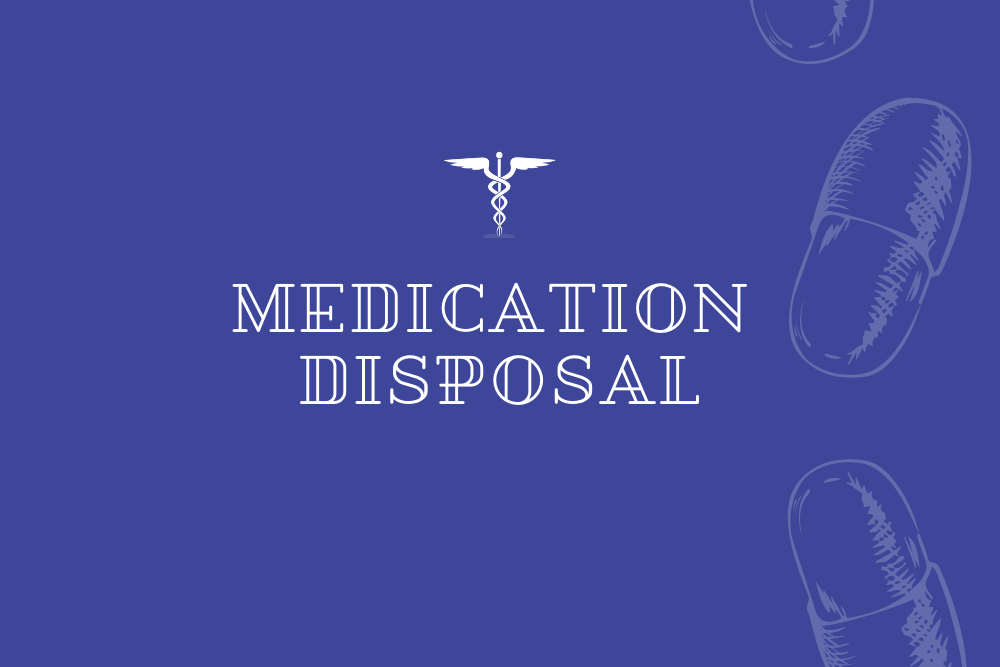Do you have medications in your cabinet that were prescribed ages ago, but never used up? The best time to dispose of these pills and tablets is now, before they find their way into a dangerous situation.
The Dangers of Unused Prescription Pills
You definitely don’t want to take a pill, even from your own prescription, after its official expiration date. Its chemical composition may be changing with age, rendering it ineffective or even dangerous. (Humidity can speed up the aging process, so prescriptions you are still taking are best stored in cool, dry places.)
You don’t want anyone else taking your pills either—accidentally or deliberately, expired or otherwise—since prescriptions are formulated for individuals. This danger multiplies with small children: inexhaustibly curious, clever, and reckless, they frequently figure out “childproof” caps. Over 50,000 children a year wind up in emergency rooms after ingesting prescription meds.
Finally, hundreds of thousands of people are addicted to opiates, benzodiazepines, or other prescription drugs, and are all too willing to continue that addiction through someone else’s bottle.
How Not to Dispose of Medications
Curious kids (and animals), as well as people desperate for drugs, can find medication even after it’s thrown away. So don’t toss your own pills into any public trash receptacle. Ideally, don’t even put them into your own household trash.
Don’t flush old pills down the toilet, either. Although some meds are officially “approved” for flushing by the Environmental Protection Agency, there’s no guarantee that flushed pills won’t pollute the water or poison wildlife, especially since many wastewater treatment systems aren’t designed to filter out medications.
Medication Take Back Programs
The safest approach is to do with unused medications as you would with toxic waste: give them to the experts. If you’re reading this in April, your timing is right for National Prescription Drug Take Back Day (April 30). Started in 2010 by the Drug Enforcement Administration, this is a program where law-enforcement offices set up temporary Collection Sites where anyone can drop off surplus medications for safe disposal.
(Check the DEA website for an official Collection Site near you. As of this writing, there are 20 sites in the Philadelphia area, and more places will open across the country as the official date gets closer.)
If you miss Take Back Day, there are other “take back” options open year round. The National Association of Boards of Pharmacy maintains an online Drug Disposal Locator Tool that can be searched for recommended locations. (There are 60 in or near Philadelphia.) Or ask for recommendations from your own pharmacy, your doctor, your local health office, or a Poison Control Center.
A Note About Prescription Pills and Addiction
If you suspect that anyone in your household has a prescription-medicine addiction—which may be the case if they are evasive about how much they take, or are spending excessive time going to multiple doctors or pharmacists—do not sneak their pill supply off to a take-back program. However justifiably you wish they had no more pills around, it won’t solve the larger problem –and they may suffer painful, even potentially lethal, withdrawal symptoms if their supply is cut off abruptly. Get advice from a doctor, therapist, or intervention specialist if you have addiction in the family.
If you have an addiction to prescription medication, you’re as vulnerable as anyone else to withdrawal symptoms and relapse. Before tossing the last of your pills, notify your prescribing doctor(s) of the problem. As soon as possible, contact an addiction-medicine specialist and make a plan for medically supervised detox and recovery.
If a family member has recently been treated for addiction, store your own prescription medications with your private property. Temptations to relapse will be strong for several months, and your loved one doesn’t need easily visible pills adding to the pressure.
Finally, as an extra precaution, scratch all identifying information from your medication bottles before disposing of them, or someone may find the bottle and obtain a “refill” under false pretenses. Do your part to keep not only old medications, but all drugs, from harming anybody.
Prescription-Drug Addiction Treatment for Professionals in Philadelphia
Addiction is no different from any other illness in that it gets worse when ignored, and the long-term consequences are devastating. There’s no need to worry: we at Providence Treatment understand your unique needs as a busy professional, and we guarantee an individualized program suitable to your situation. Contact us today to learn how we can help you get free of addiction and build a more effective life!
Recommended articles:
- “Combating the opioid epidemic.” (City of Philadelphia)
- “Don’t Be Tempted to Use Expired Medicines.” (U.S. Food & Drug Administration)
- “Don’t flush medicines down the drain.” (Minnesota Pollution Control Agency)
- “Emergency Department Visits Involving the Accidental Ingestion of Opioid Pain Relievers by Children Aged 1 to 5.” (Substance Abuse and Mental Health Services Administration)
- “Prescription Drug Abuse Statistics.” (National Center for Drug Abuse Statistics)
- “Take Back Day.” (Drug Enforcement Administration)
- “Where and How to Dispose of Unused Medicines.” (U.S. Food & Drug Administration)









